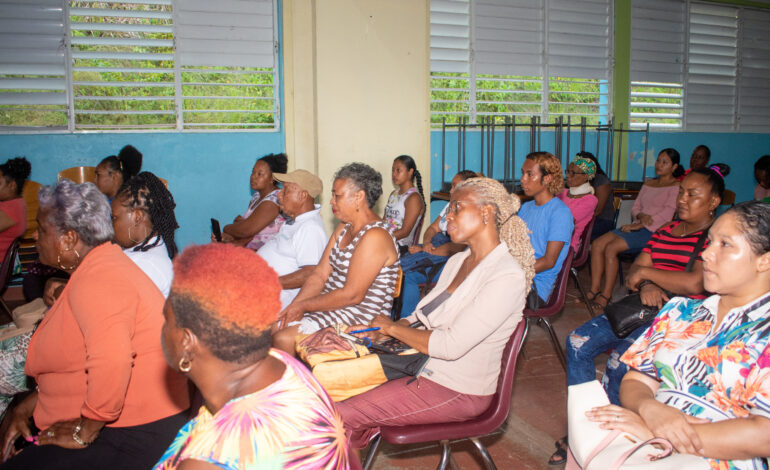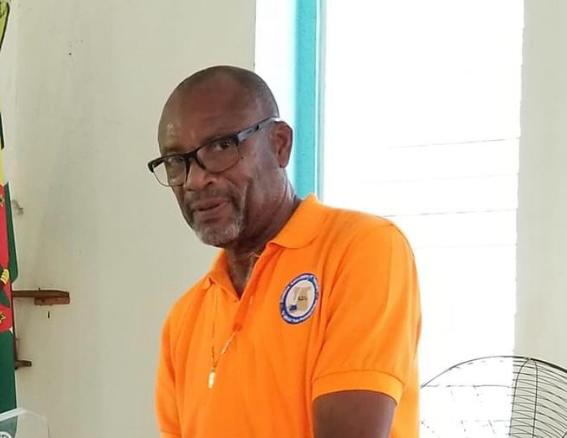
Grand Cayman, Cayman Islands. CCRIF is collaborating with The University of the West Indies (The UWI) to reduce the impacts of wildfires on the people, communities, and the economy of Barbados.
CCRIF has provided a grant of approximately US$25,000 to the Centre for Biosecurity Studies at The UWI, Cave Hill Campus for a project focused on understanding the impact of climate change and wildfires in Barbados. Wildfires are common during the dry season and pose a risk to human health, lives, crops, and property, and can deplete scarce water resources.
To date, project funds have been used to purchase drones to collect data on wildfires (for example sugarcane, grass, and rubbish fires) to enable the Barbados Fire Service to develop evidence-based strategies to address fire-related risks. On September 28, The UWI handed over four drones to the Barbados Fire Service to aid in their firefighting efforts. Through the project, Fire Service officers will participate in training on how to use this drone technology, to better coordinate wildfire monitoring from an aerial view.
CCRIF has also provided funding for the procurement of 10 air pollution sensors, which will be donated to the Ministry of Health to assist in their monitoring of air pollution levels and to determine the impact of wildfires on air pollution. The contribution of wildfires to air pollution is known to exacerbate respiratory illnesses especially in persons with health conditions such as asthma. The sensors will be installed at strategic locations (e.g., wildfire “hotspots”) near to residential communities that are at risk of wildfires.
CCRIF CEO, Mr. Isaac Anthony in commenting on the project, indicated that “At CCRIF we will continue to provide resources for the implementation of projects like these across the Caribbean. These projects that are part of our Small Grants Programme are key to building the resilience of our people, communities and organizations to natural hazards and climate change. Since 2015, CCRIF has provided over US$3 million for projects being implemented by civil society organizations, academic institutions and governments across the region. The focus of our funding includes the rehabilitation of ecosystems; climate-smart agriculture; hazard-resilient construction; nature-based solutions; and climate change adaptation – with all projects including capacity building components. We are desirous of doing more under our small grants programme and scaling up our support and we encourage NGOs from across the region to apply for grants throughout the year via our small grants platform at https://www.ccrif.org/ccrif-small-grants-programme.”
An important component of the project with The UWI will be to conduct risk communication training for media and other organisations such as the Barbados Water Authority, The Asthma Association of Barbados, Barbados Cancer Society, Barbados Heart & Stroke Foundation, and the Barbados Diabetes Foundation. This training is being designed to increase public awareness about the relationships among climate, fires, water infrastructure vulnerability, and environmental and human health impacts – and actions that persons can take to safeguard their health.
This current project with The UWI is being implemented as part of a Memorandum of Understanding between The University of the West Indies and CCRIF. This longstanding partnership has been in place since 2010 and the MOU provides a framework for collaboration on disaster risk management and climate change adaptation projects, delivery of courses on disaster risk financing as well as capacity building through provision of scholarships and internships to students. Since 2010, CCRIF has provided The UWI with resources surpassing over US$1.6 million inclusive of US$1 million for undergraduate and postgraduate scholarships to 148 Caribbean nationals. Other projects that CCRIF has supported The UWI with include the provision to the Seismic Research Centre (SRC) of 15 strong motion sensors in Grenada, Barbados, Saint Lucia, Dominica, Antigua, St. Kitts, Nevis, St. Vincent, and Jamaica to establish and maintain a new accelerometric network in the Eastern Caribbean and Jamaica.

In this file photo, UWI Cave Hill Deputy Principal Prof. Winston Moore (centre) presents 4 drones to Barbados Chief Fire Officer Errol Maynard (left), as part of a grant of US$25,000 provided by CCRIF to The UWI to assist in better understanding the impact of wildfires in Barbados.
About CCRIF SPC:
CCRIF SPC is a segregated portfolio company, owned, operated, and registered in the Caribbean. It limits the financial impact of catastrophic hurricanes, earthquakes, and excess rainfall events to Caribbean and Central American governments by quickly providing short-term liquidity when a parametric insurance policy is triggered. It is the world’s first regional fund utilising parametric insurance, giving member governments the unique opportunity to purchase earthquake, hurricane and excess rainfall catastrophe coverage with lowest possible pricing. CCRIF was developed under the technical leadership of the World Bank and with a grant from the Government of Japan. It was capitalized through contributions to a Multi-Donor Trust Fund (MDTF) by the Government of Canada, the European Union, the World Bank, the governments of the UK and France, the Caribbean Development Bank and the governments of Ireland and Bermuda, as well as through membership fees paid by participating governments. In 2014, a second MDTF was established by the World Bank to support the development of CCRIF SPC’s new products for current and potential members and facilitate the entry of Central American countries and additional Caribbean countries. The MDTF currently channels funds from various donors, including Canada, through Global Affairs Canada; the United States, through the Department of the Treasury; the European Union, through the European Commission, and Germany, through the Federal Ministry for Economic Cooperation and Development (BMZ) and KfW. Additional financing has been provided by the Caribbean Development Bank, with resources provided by Mexico; the Government of Ireland; and the European Union through its Regional Resilience Building Facility managed by the Global Facility for Disaster Reduction and Recovery (GFDRR) and the World Bank.





